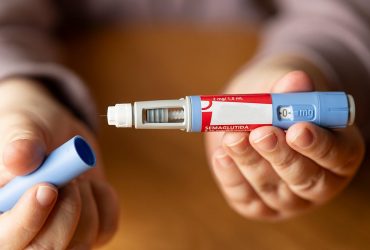Strong outcomes seen in terms of weight loss, with lower doses of semaglutide used
The chemicals are already illegal in the European Union and other places around the world
Clinically relevant improvements seen in glycated hemoglobin, blood pressure, and BMI for adults
Children and adolescents living in food-insecure households have greater use of outpatient and acute care contacts
Decreased risk seen for cardiovascular disease, kidney failure, gout, sleep disorders, and mood disorders
Symptoms of addiction more common among women and those who are overweight or in fair, poor health
Improvement in dietary-nutritional profile seen with conventional nutritional education strategies, specific nutritional advice with a symbiotic effect
SNAP users had about two fewer years of cognitive aging than nonusers during a 10-year period











